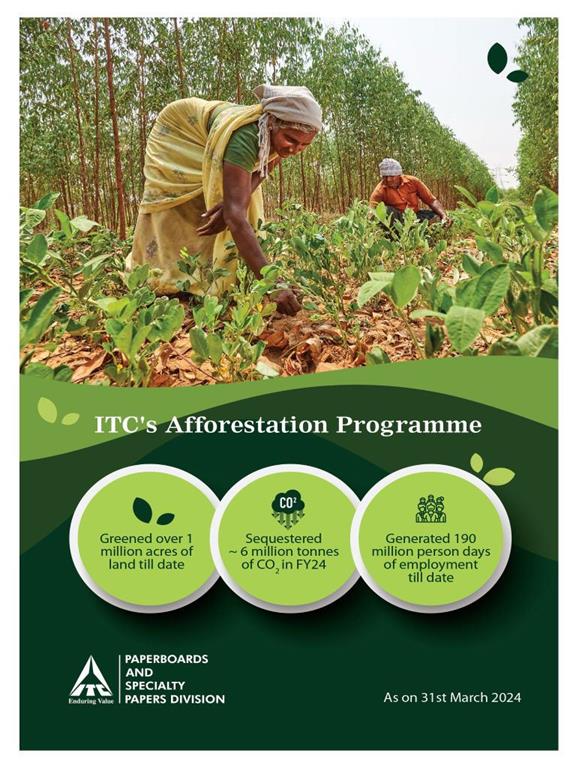
In the paperboards and paper domain, ITC continuously works towards sustainable growth and minimizing the impact of its operations on the environment. ITC is committed towards credible certification for the wood, wood pulp and recycled fibres that we use for making our various grades of paperboards and fine papers.
Availability of wood, the prime source of fibre for paper and paperboards, remains a major challenge and concern for sustainability in this industry. National environmental laws in India do not allow corporations to own and manage forest lands, and this poses a significant challenge for us in procuring sustainabily-managed wood.
To overcome these challenges, ITC has developed a farm plantation programme, with buy-back guarantee, which provides employment and income to farmers, and uses high-yielding, site specific, disease-resistant saplings and a comprehensive package of plantation and management practices to ensure constant supplies of high-quality raw material to our manufacturing facilities.
Under this programme, ITC sells these saplings to farmers for a nominal fee, and provides extensive support in terms of know-how of best practices like efficient inter-cropping, protecting plants from insect attacks, soil nutrients and logging. We also provide the farmers with a buy-back guarantee at the current prevailing rates when the tree matures. However, farmers are free to sell the wood to any other party as well.
In addition to achieving self sufficiency, ITC had envisaged social forestry programme to alleviate poverty and to improve the livelihoods of people below the poverty line, in support of National Poverty Alleviation Programme during 2001-02. This model simultaneously tackles problems of endemic poverty of tribals and meets part of the need of wood for our business. Multi species plantations along with inter crops are promoted on private wastelands by providing long term loans to resourceful households.